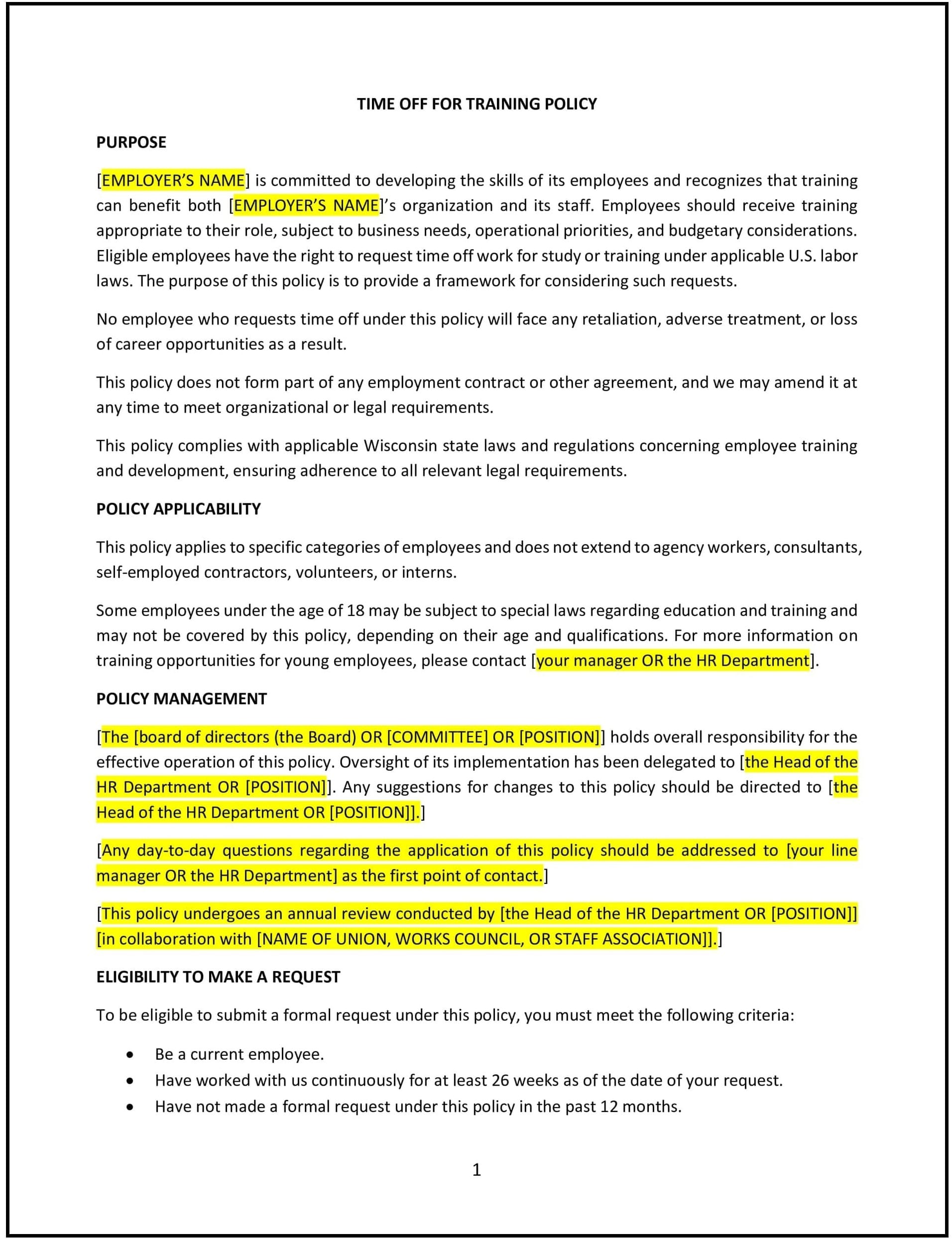Time off for training policy (Wisconsin): Free template
Got contracts to review? While you're here for policies, let Cobrief make contract review effortless—start your free review now.

Customize this template for free
Time off for training policy (Wisconsin)
In Wisconsin, a time off for training policy supports employee development by providing guidelines for requesting and approving time off to participate in professional training or educational programs. This policy helps businesses enhance workforce skills, comply with industry standards, and promote career growth while ensuring minimal disruption to operations.
The policy outlines the types of training eligible for time off, the request and approval process, and the responsibilities of both employees and employers.
How to use this time off for training policy (Wisconsin)
- Define eligible training: Specify the types of training programs covered by the policy, such as job-related certifications, workshops, or continuing education.
- Outline the request process: Provide clear steps for employees to request time off, including submitting documentation of the training and its relevance to their role.
- Clarify pay guidelines: Indicate whether the time off for training is paid or unpaid, depending on the nature of the training and company policy.
- Ensure equitable access: Set guidelines to ensure that all employees have equal opportunities to participate in training programs.
- Support compliance: Align the policy with Wisconsin labor laws and any industry-specific training requirements.
Benefits of using a time off for training policy (Wisconsin)
- Enhances workforce skills: Encourages employees to pursue professional development, improving overall organizational capabilities.
- Supports compliance: Helps businesses meet industry standards and Wisconsin labor laws related to required training and certifications.
- Increases employee retention: Demonstrates the company’s investment in employee growth, leading to higher job satisfaction and retention.
- Promotes fairness: Provides a clear and consistent framework for granting time off for training opportunities.
- Minimizes disruptions: Ensures proper planning for training leave, reducing the impact on daily operations.
Tips for using a time off for training policy (Wisconsin)
- Communicate the policy: Include the policy in employee handbooks and share it during onboarding to ensure employees are aware of their options for training leave.
- Plan ahead: Encourage employees to submit training requests well in advance to allow for proper scheduling and workload adjustments.
- Offer support: Provide resources or recommendations for relevant training programs that align with company goals and employee development.
- Monitor participation: Track training participation to ensure equal access and assess the effectiveness of the policy.
- Review regularly: Update the policy as needed to reflect changes in industry standards, Wisconsin labor laws, or company priorities.